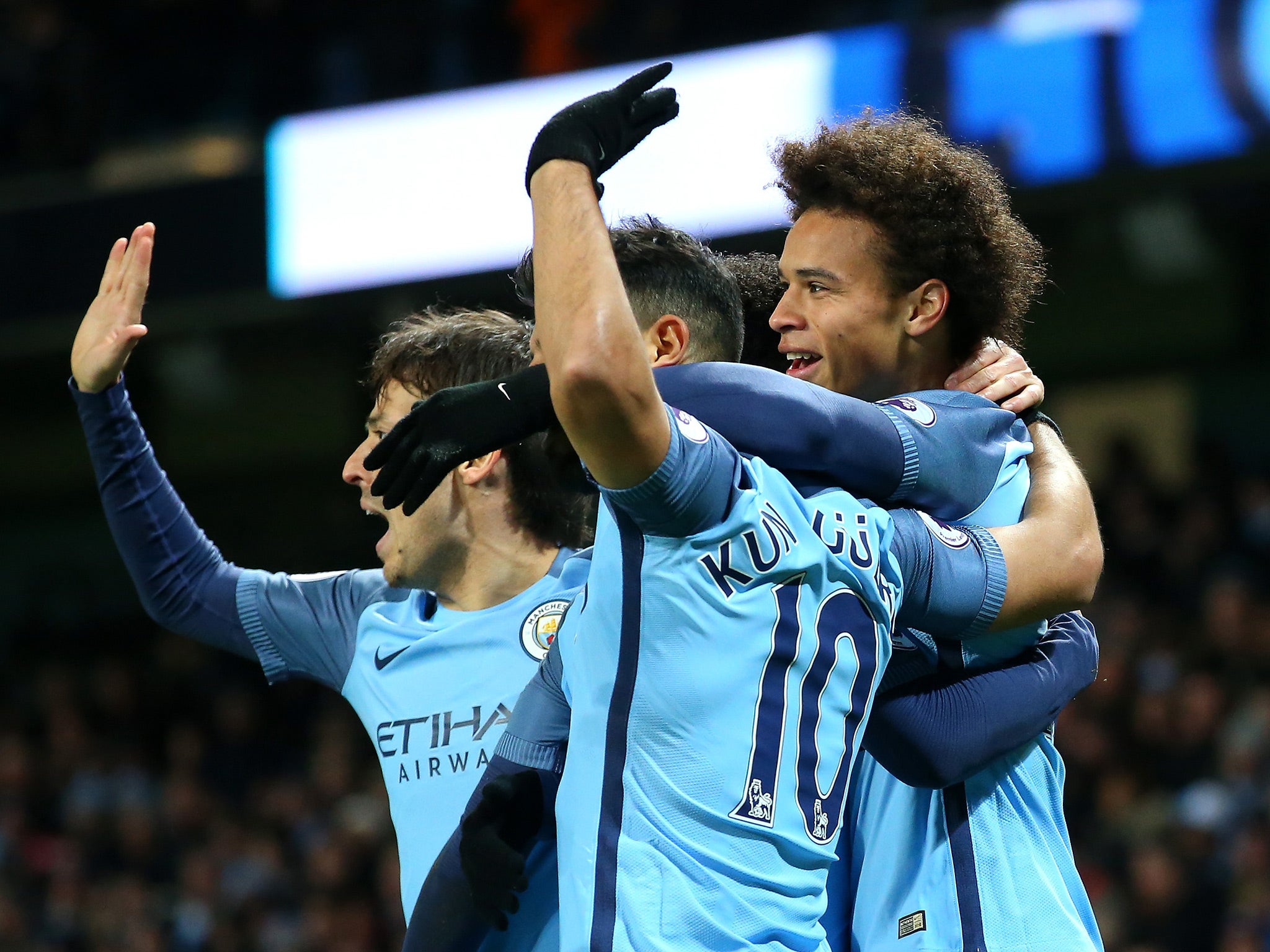Manchester City's collapse against Tottenham left us with more questions than answers
This could have been Guardiola's most convincing win of the season so far, given how well his side played offensively, but instead it invited only more questions about his divisive style

The electrically-charged Etihad had finally started to settle, and minds had started to try and make sense of the brilliant chaos just seen between Manchester City and Tottenham Hotspur, but Pep Guardiola wasn’t yet completely calm. That came across when he began to talk about his side’s title chances, and contradicted himself.
Then again, that probably fitted the pattern of this game better than anything. This was a match of contradictions. There were many prolonged periods of play that invited substantial conclusions about the two sides, only for a massive moment to then happen that completely contradicted it. Spurs were still short of the maturity whereby they could go away to a fellow top-six side and convince, for example, only to then pull off the type of hugely creditable comeback in such a fixture that demands huge respect.
It is also why City could put in the type of performance that offered a lot of convincing answers to the serious questions of the last week, but still ended up with a result that invited so many questions.
Guardiola was so exasperated that he offered a few exclamations in his post-match press conference.
“I am sad for the players again because when we play s*** I will say we are playing s***,” the City manager said. “It is a pity as they don’t deserve it.”
Guardiola does deserve credit, however, for the bravery that he approached this game with. There’s no other way of putting it. This was hugely impressive counter-intuition, and gall. It is fair to ask who else in the game would have gone for it.

After a week when your defensive aptitude has been justifiably hammered, after your backline has itself been shredded, and you prepare for one of the exceptional proactive pressing team in the league, the logical decision would surely have been to be a bit more pragmatic; to adapt a bit; to and restore some basic security to that team foundation. It was something, for example, that Sir Alex Ferguson routinely did on his rare big reverses. After United had been beaten 6-1 by City in October 2011, for example, his first response was to just lock down the defence and just make sure he got wins in the next few games - no matter how dull they were.
Guardiola didn’t do anything like that. He went in completely the opposite direction. He totally front-loaded his attack, to the point that Yaya Toure was his sole defensive midfielder. The supposedly tired 33-year-old, who is best used breaking intermittently, was the man tying that formation together. In front of him were five players only too willing to pour forward.
It should have been a recipe for disaster. And yet, it completely worked - at least in a purely tactical and performance sense.

City genuinely put in one of the best attacking displays of the season, regularly ripping apart one of the best defences in Europe, albeit one without Jan Vertonghen. They should have been out of sight by half-time, such was the ease that they were unstitching the Spurs backline, and the way they were creating chances.
And they would have been out of sight… had it not been for imprecise finishing, errors in front of goal, one big error from referee Andre Marriner, and a typical porousness in the City backline.
It is just another contradiction of this game. Guardiola and City did enough to win the game, and provide the ultimate response to the questions of the last week, but you can still wonder about his defensive deficiencies. This is one of the beautiful quirks of a low-scoring game like football.
On another night, when the thin margins of big individual moments went a slightly different way, City would have put in one of the most convincing wins of the season; one of the most assertive statements of the season against one of the best sides. They were that good, their attacking that impressive.
And yet their defending was still so bad. When Spurs finally got forward, and at last escaped the near relentlessness of the City press, they punished Guardiola’s defence with undue ease.
That provokes a few discussions, despite the dynamism of the display. First of all, is one reason for Guardiola’s impressive bravado because he knows no other way? Is it a conservatism in its own sense, despite the adventure of the football it brings?
Secondly, for all the longer-term debate about how much of his career success was dependent on Leo Messi, Andres Iniesta and Xavi, is it possible that the most important players to Guardiola were always those like Sergio Busquets, Gerard Pique and Philipp Lahm? His coaching, after all, generally means his attacks take care of themselves - as this game perfectly illustrated. Those defensive lynchpins were the figures that inherently understood his way, allowed him to play the football he idealises, but were still rounded enough to offer the defensive security that City so badly lack.
Guardiola’s best Barca and Bayern teams were often susceptible to sudden breaks from opposition - like, most notably, Ivan Cuadrado’s goal for Juventus against the Germans in last season’s Champions League last 16 - but those moments stand out all the more, because players like Lahm or Busquets were so good at mopping up such attacks.
The signs were there on Saturday night that things will be fine - and perhaps even prosperous - in the long-term. He just has to get through the issue of the medium-term to get there. Another apparent contradiction.
Join our commenting forum
Join thought-provoking conversations, follow other Independent readers and see their replies
Comments